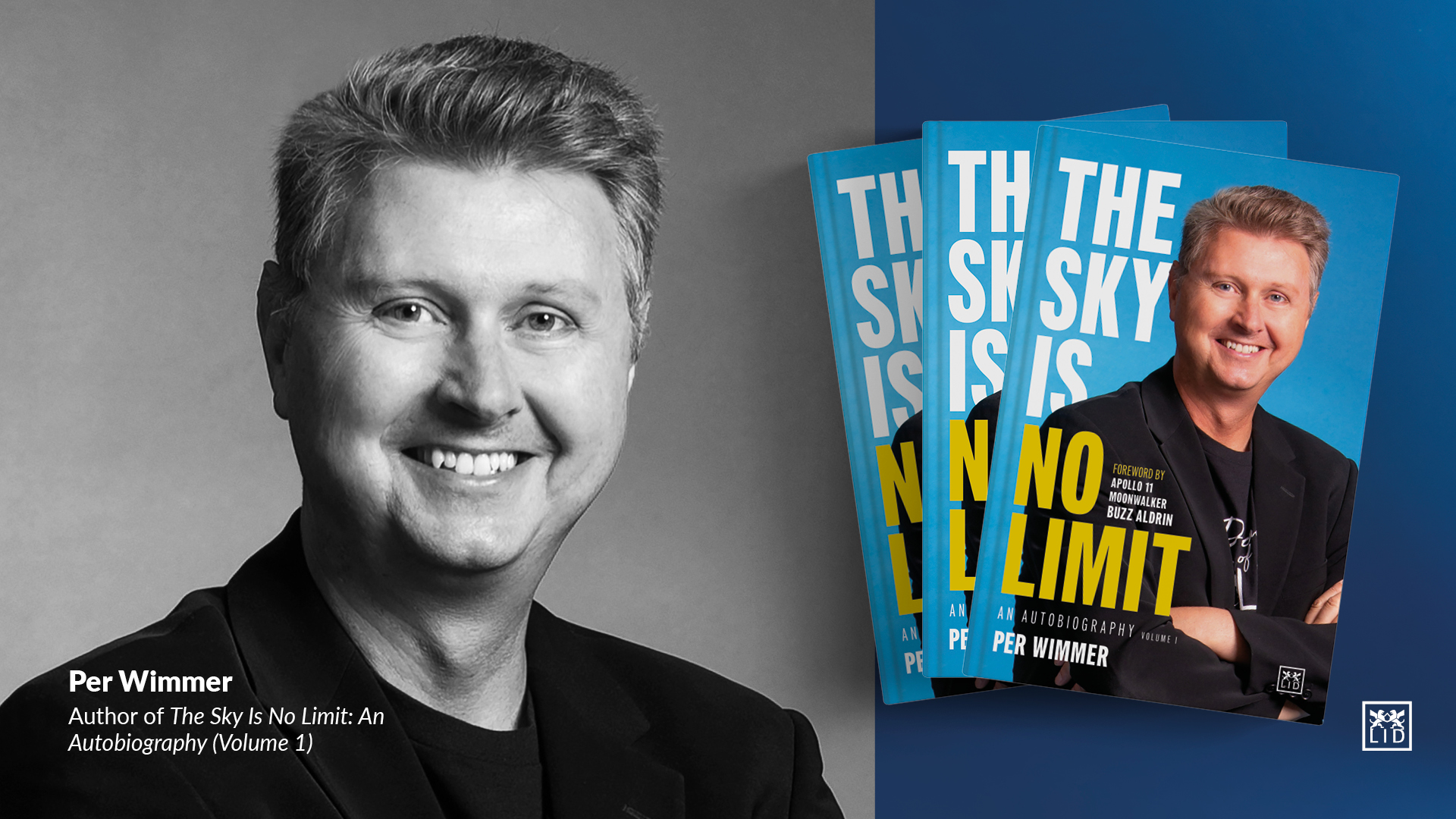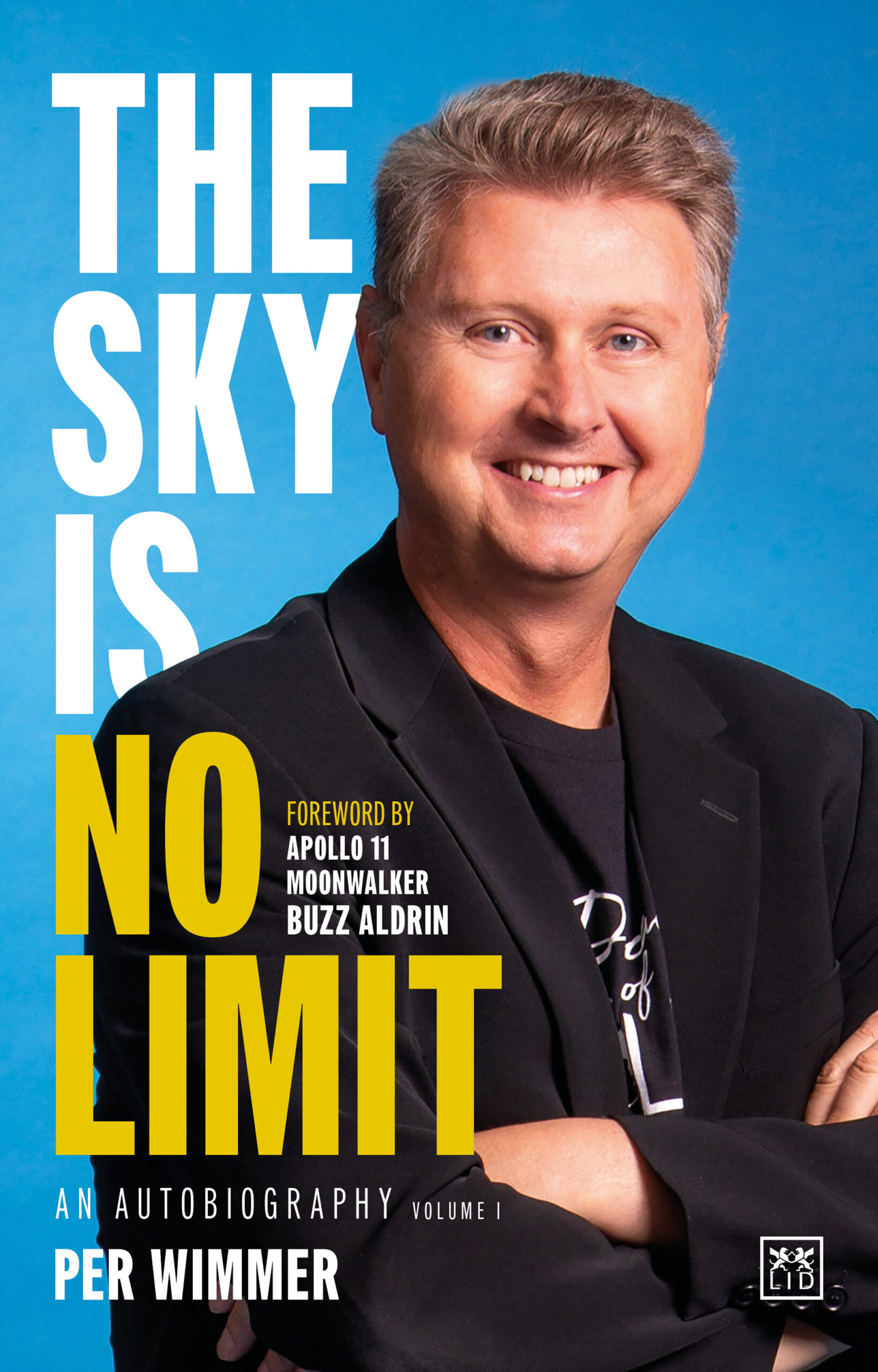|
The Seven Wimmer Values with Per Wimmer
The Seven Wimmer Values

By Guest Contributor Per Wimmer
Author of The Sky Is No Limit, Per Wimmer, shares the seven values that sum up his approach to life and work.
I am an entrepreneur, an adventurer, an explorer, and a soon-to-be astronaut. I have launched my own boutique investment bank, Wimmer Financial, and two other finance companies, Wimmer Family Office and Wimmer Accounting. My first entrepreneurial venture, Wimmer Space, was launched to deal with speaker engagements and the media interest that began to grow once it became known that I was the first European to buy a private ticket into space: I am one of the Founding Astronauts of Richard Branson’s Virgin Galactic and will be soon be making a trip to space on board VSS Unity, the current incarnation of Virgin Galactic’s SpaceShipTwo. SpaceShipOne was the breakthrough spacecraft that won the Ansari X Prize back in 2004, a $10 million prize offered for the first reusable commercial spacecraft to fly into space twice within two weeks. The Ansari X Prize generated, as it was intended to, a great deal of excitement and investment in the idea of developing a reusable spacecraft outside of NASA or other government agencies.
At one point, I owned two other tickets to space: one with Space Adventures, the first ever company to offer private trips to the International Space Station aboard Russian Soyuz rockets; and one with a company called XCOR who were developing a revolutionary rocket plane. The Russians never did develop the C-21 spaceplane that would have delivered Space Adventure’s planned suborbital flights I had bought a ticket for. XCOR, sadly, went bust. The private exploration of space is in exactly the same stage of development as commercial air travel in the early twentieth century and SpaceShipOne’s award-winning flight into space to win the Ansari X Prize is an exact equivalent of Charles Lindbergh’s epic 1927 flight from Long Island in America to Paris in France in the Spirit of St Louis, which won the then-recently-offered Orteig Prize, designed to stimulate innovation and investment in early air travel. In all phases of revolutionary innovation, as new technologies break out of the realm of pure science and enthusiastic amateur involvement, not every early commercial venture is successful. That’s how capitalism works, and why it works so well.
I bought three tickets to space precisely because I knew that not every venture would necessarily succeed and because I have always been obsessed with the idea of travelling into space. As an adventurer, I want to push back boundaries and go to places few people have ever been. To date, only around 600 people have ever been into space. I am determined to be one of them. If all three tickets had resulted in a trip to space, I could not have been happier!
I have completed a world-record-breaking skydive over Mount Everest; taken part in an attempt on the world landspeed record driving a modified F-104 Starfighter; been diving with sharks in Fiji; hiked the Inca Trail in Peru; and flown out to the aircraft carrier USS Nimitz in the Pacific Ocean in a C2 Greyhound Navy plane, landed on the carrier in true Top Gun fashion and been catapulted back off. I have spent time with Richard Branson and his family on his privately-owned Nekker Island in the Caribbean, and I own a small private island of my own in the far colder waters off Denmark! I have partied with the rich and famous in St Tropez, in Monaco, in St Barts and wherever else the jet set happens to drop by and have fun. One commentator described me as “a true Indiana Jones meets James Bond.” I can’t complain about that.
My involvement with the commercial space industry has led to a lot of media interest: I am a regular commentator on space issues for various TV channels. I also give regular inspirational presentations about my life and my coming trip into space. My favourite audience is an audience of schoolchildren. I am passionate about inspiring young people to live out their dreams, whatever those dreams may be.
I come from an ordinary family in Denmark. My father was one of eight children of working parents. My mother’s family had a small farm holding. My father went to work at a young age in a bicycle shop to help the family income but went on to own and run his own GM car dealership, one of the most successful in Denmark. My parents’ hard work and success helped make it possible for me to earn a degree and a master’s degree in law from the University of Copenhagen; an LL.M from the University of London; a master’s degree in European Political Science from the College of Europe in Bruges, and a master’s in public administration degree at Harvard. I worked for Goldman Sachs after leaving Harvard, becoming Executive Director for Institutional Sales of Equity Products and then for Collins Stewart (now Canaccord) and, later, for Man Securities. I founded my own investment bank, Wimmer Financial, in 2007, just one year before the collapse of Lehman Brothers, the ensuing global financial crash and the start of the Great Recession. But Wimmer Financial survived and then prospered. When I tell young people that they can achieve whatever they set their heart on, I think I have some credibility.
Out of these presentations to young people and to other, more corporate audiences, I developed The Seven Wimmer Values. I don’t claim ownership of any of the individual values: you will have seen them in other contexts. But they work for me, and they sum up my approach to life and work.
The Seven Wimmer Values
- Think out of the box: allow yourself to be inspired.
This has genuinely been my mantra throughout my life. Think about what is possible; don’t follow the well-trodden path. Allow yourself to be inspired by many things. Explore what sparks your interest.
- Follow your heart and passion: have purpose; have fun; be authentic.
We can’t do anything to the best of our abilities if we don’t have a genuine passion for what we are doing. Identify the things you are truly passionate about: these are the things that will energise you and keep you going when things get tough. Remember the old true saying: “Find a job you love, and you will never work a day in your life.” Doing what you love will also automatically make you authentic. You are not playing a role. This is you.
- Focus and execution.
It’s great to have new and crazy ideas, but it’s harder to make them a reality. After all the wonderful gazing at stars, you will need focus and execution to make your dreams actually come true. A lot of supposedly inspirational advice tends to stop at the bit where they say, ‘You can do anything if you only believe in yourself!’ I find a lot of focus and execution is needed as well as the belief bit.
- Time discipline: Be conscious about time allocation.
Time is our most precious resource; you need to make tough decisions about how you allocate that resource. If you feel you are wasting your time, you probably are. Pivot back to what you really care about.
- Teamwork: The sum of the parts is greater than the individual parts alone.
You can’t do it on your own. Build a great team. If you start to think, “This is all down to me!”, put your head in a bucket of iced water. You may have set the thing in motion, but no one can do anything significant on their own. Respect the people who help you achieve your dream.
- Take calculated risks: assess the risks-rewards ratio, apply sustainable solutions respecting the environment and scarce resources.
When I carried out the skydive over Everest, there was a real possibility of a serious and even fatal accident. But we had an expert team and we had prepared well. The risks were real, but not stupid. The later attempt on the landspeed record I was part of eventually ran out of time, energy and money, but I had already experienced one minor prang while driving the jet-powered vehicle, the North American Eagle, in the Black Rock Desert, Nevada, when the car hit a soft patch of ground. The next team to make an attempt with the North American Eagle used professional racing driver Jessi Combs: ‘the fastest woman on four wheels.’ A front wheel of the North American Eagle failed during a record attempt in the Alvord desert, Colorado, and Combs tragically died. I am personally comfortable with levels of risk in the single digits, such as a 2% chance of significant failure. When the chance of failure enters double digits, I back off. It’s the same in business: take calculated risks; don’t take a mad leap of faith into the dark.
The issue of sustainability is simple but essential: if we plunder the earth’s resources for short-term gain, we will leave nothing behind for future generations. We are, I hope, beginning to learn this crucial lesson.
- Inspire others, especially children, and encourage them to live out their dreams.
There is no need to expand on this core value: if you achieve something of note, use it as an example to inspire the next generation. It’s important to give something back, and you may well find it is one of the most fulfilling things you do.
ABOUT THE AUTHOR
Suggested Reading
 The Sky Is No Limit is the first volume in the autobiography of a person who a commentator described as “a true Indiana Jones meets 007 James Bond”. Per Wimmer’s life story is far from ordinary and very much driven by the desire to push boundaries. This first volume covers Per’s formative years, his growing fascination for adventure, travel and space, and the growth of his career in international finance, culminating in the founding of Wimmer Financial.
The Sky Is No Limit is the first volume in the autobiography of a person who a commentator described as “a true Indiana Jones meets 007 James Bond”. Per Wimmer’s life story is far from ordinary and very much driven by the desire to push boundaries. This first volume covers Per’s formative years, his growing fascination for adventure, travel and space, and the growth of his career in international finance, culminating in the founding of Wimmer Financial.

 Per Wimmer is a global financier who founded investment management companies Wimmer Financial and Wimmer Family Office. Outside of work, he is an astronaut, adventurer and philanthropist. Danish in origin, Per lives mostly in London.
Per Wimmer is a global financier who founded investment management companies Wimmer Financial and Wimmer Family Office. Outside of work, he is an astronaut, adventurer and philanthropist. Danish in origin, Per lives mostly in London.